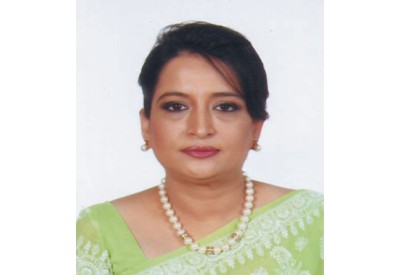Banking
Forex reserve may cross $10b this week: BB
The foreign exchange reserve is rising with falling import costs and a better remittance inflow, according to the Bangladesh Bank (BB).
The forex reserve that stood at $9.96 billion yesterday may exceed $10 billion this week, said an official of the central bank.
Saidur Rahman, general manager of BB, attributed the continued reduction in import costs and healthy export growth to improvements in the forex market.
According to the BB, the country imported goods worth $17.82 billion during the first six months of the current fiscal, which is 16.91 percent higher than the same period a year ago.
M Akhtaruzzaman, economic adviser to the BB, said all financial institutions have been advised not to sanction loans for import of unnecessary and luxury items, which had a positive impact on the country's overall import.
The Daily Star/Bangladesh/ 27th Feb 2012
BB to launch 3 new notes on historic March 7
Bangladesh Bank (BB) will introduce new bank notes of Tk 10, Tk 20 and Tk 50 denominations bearing the portrait of Bangabandhu Sheikh Mujibur Rahman, on historic March 7.
The new notes will carry the signature of BB Governor Atiur Rahman and will have synthetic fibres, a central bank press release said yesterday.
The notes will be initially issued from the BB's Motijheel office counters and later from its other offices and all commercial banks.
All the existing paper notes in circulation will also remain valid alongside the new notes.
The three new notes will have the portrait of Bangabandhu printed on their front and a photograph of the National Mausoleum on the background of the portrait.
However, the new Tk 10 notes will have Baitul Mukarram Mosque, the Tk 20 notes Shat Gombuj Mosque in Bagerhat, and Tk 50 notes Shilpacharya Jainul Abedin's famous painting “Ploughing” printed on their back.
The Daily Star/Bangladesh/ 27th Feb 2012
Women chamber chief wins IDB award

Selima Ahmad, founder and president of Bangladesh Women Chamber of Commerce and Industry (BWCCI), won the Islamic Development Bank (IDB) Prize for women's contribution to development 2012.
Selima got the award for her leadership and ability to utilise financial networks to promote the development of women entrepreneurs in Bangladesh, BWCCI said in a statement yesterday.
The individual category prize, a cash award of $50,000 will be equally shared by Selima Ahmad and Seyedeh Fatimah Moghimi, founder and managing director of "Sadidbar", an international shipping transportation company in Iran.
Selima will receive the IDB Prize 2012 during the 37th annual meeting of the IDB Board of Governors at Khartoum in Sudan on April 3-4.
The Daily Star/Bangladesh/ 27th Feb 2012
Citi appoints two Bangladeshis in global positions
 L-R: Parvez Murshed, Mir Hafiz
L-R: Parvez Murshed, Mir Hafiz
Citi Bank NA has recently appointed Parvez Murshed as its regional head of implementation for treasury and trade solutions (TTS) for Asia Pacific, and Mir Hafiz as head of trade services operations at Center of Excellence at Dalian in China.
Murshed is now responsible for the overall coordination and implementation for regional clients across Asia Pacific, the bank said in a statement yesterday.
He will be based out of Singapore. Prior to joining the regional role, Murshed headed the global transaction services business at Citi Bangladesh since 2008.
Hafiz will be responsible for managing trade operations growth and migration of trade into Dalian from across Asia Pacific region.
He will be part of the core TTS operations leadership team to ensure sustained growth in cash and account services operations in addition to trade in Dalian.
“Citi seeks out and hires diverse and highly-talented individuals; with business presence in more than 160 countries and jurisdictions, these talented individuals have a unique opportunity to build their professional career using Citi global network,” said Rashed Maqsood, Citi country officer.
The Daily Star/Bangladesh/ 27th Feb 2012
Govt raises savings tools’ rate of return from Mar 1
The government has raised the rates of return on all existing savings tools by as much as 2.64 per cent with effect from March 01 next to help lower the government's borrowing from the banking system, a senior official in the Ministry of Finance (MoF) said.
The Internal Resources Division (IRD) under the MoF on Thursday issued the circular to this effect. Finance Minister AMA Muhith approved the upward adjustment of rates of returns on different savings instruments on Wednesday last, sources said.
The rates of return on all five categories of saving instruments have been revised. These are -- 5-year Sanchayapatra, three-monthly Sanchayapatra, Pensioner Sanchayapatra, Poribar Sanchayapatra and Postal Savings Bank (fixed deposit).
However, the current practice about deduction of five per cent tax at source and the investment limit will remain unchanged. The current savings instrument holders, regardless of categories, will not get the facility of enhanced rate of return, a high official in the IRD said.
According to the circular of IRD, signed by its Secretary Dr. Nasir Uddin Ahmed, the rate return on five-year Sanchayapatra has been revised to 13.19 per cent including 0.99 per cent Social Security Premium(SSP) from existing 11.55 per cent.
The rates in case of getting returns before the expiry of five-year period for five-year Sanchayapatra have also been increased to a
level between 9.20 per cent and 11.45 per cent compared to the current rates ranging between 8.0 per cent and 10.25 per cent, the circular said.
The rate of return for three monthly Sanchayapatra (3-year) has been raised to 12.59 per cent from existing 10.78 per cent. The rates in case of getting returns before the expiry of three-year period for three monthly-return-giving Sanchayapatra have also been increased between 9.80 per cent and 10.80 per cent compared to the existing rates available from 8.40 per cent to 9.40 per cent.
A three-monthly Sanchayapatra holder will get Tk 3147.50 after the new rate of return comes into effect, which is now Tk 2695. The deduction of a five per cent tax at source is applicable in both cases, an IRD official said.
The rate of return for Pensioner Sanchayapatra has been revised to 13.19 per cent from existing 11.81 per cent. The new rate will be applicable after five-year maturity period, the circular said.
The rates in case of getting the return before the expiry of five-year period for Pensioner Sanchayapatra have also been increased to a level between 9.20 per cent and 11.45 per cent compared to the current rates ranging between 8.0per cent and 10.25 per cent, the circular further said.
The rate of return for Poribar Sanchayapatra has been raised to 13.45 per cent from current 12.07 per cent. The rates will be between 9.20 per cent and 11.45 per cent in case the encashment of the tool is made before the expiry of the five-year term.
The rate of return for Postal Savings Bank (fixed deposit) has been increased from current 11.08 per cent to 13.24 per cent, the circular said.
Officials in the MoF said following the adjustment of rates of return, the budgetary cost of the government will be increased significantly but its level of borrowing form the banking system will decline strikingly.
"We cannot afford a huge level of borrowings from the banking system by the government, target of which has already exceeded during the first four months of the current fiscal year," a MoF official told the FE on Saturday.
"The middle income groups in the society will be benefited by the latest decision of the government," he added.
Recently, the commercial banks have raised their interest rates on bank deposits and many small savers found it profitable to transfer their fund from savings tools to banks resulting in poor sale of such instruments, which are the main avenue for non-bank borrowings by the government.
The government fixed the net selling target of the savings certificates at Tk 60 billion for fiscal year (FY) 2011-2012. However, the sale during the first six months of the current fiscal year from savings certificates was, in value terms, only Tk 3.34 billion, according to the data of the government.
Presently, the highest limit of investment in savings instrument is Tk 3.0 million for a single individual and Tk 6.0 million under joint names. This limit is applicable for all available tools other than Poribar Sanchayapatra. The highest limit for Poribar Sanchayapatra is Tk 4.5 million.
"The existing limit of investment will remain unchanged," an IRD official said.
Financial Express/Bangladesh/ 26th Feb 2012



